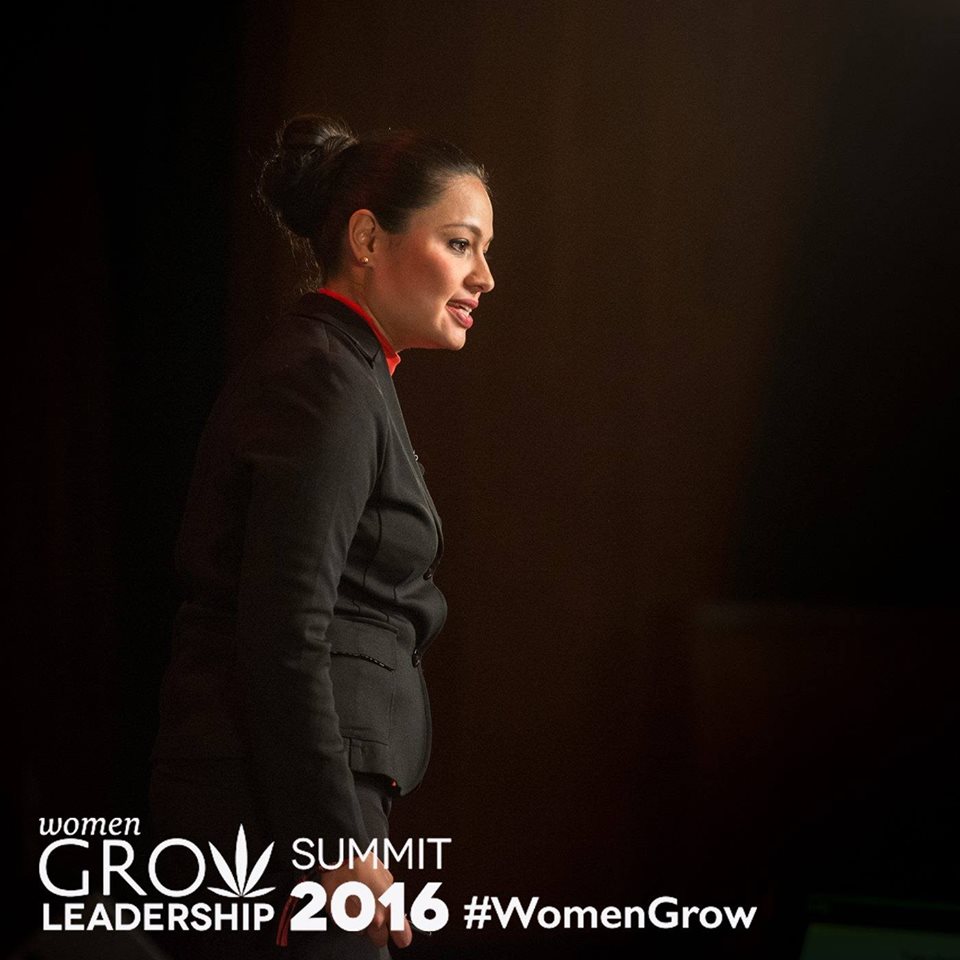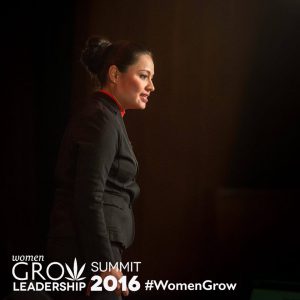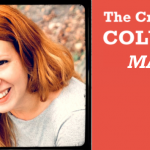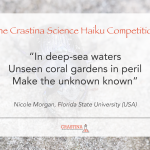Communicating Cannabis science in a women’s professional network
Science communication, Cannabis and feminism. These three seemingly unrelated phenomena are joined together by Dr. Daniela Vergara, a postdoctoral researcher at the University of Colorado, Boulder and a director of the Agricultural Genomics Foundation.
Daniela’s research aims to understand the genomic diversity and evolution in the plants of genus Cannabis. These plants have been utilized by humans for millennia for fibre, oil, medicine as well as recreational drugs, but being taboo in the recent decades left their biology and genetics understudied.
In addition, Daniela is a public speaker: she explains the genetics and evolution of these fascinating plants to members of “Women Grow”, a professional network targeting women in the Cannabis industry.
Daniela chose to study Cannabis as it is a so called “species complex”, where species naturally hybridize and create new species. She quickly learned that it was not just another study system, but a source of strong opinions and emotional response. Or as she puts it: “Everyone, even your grandmother, has an opinion about Cannabis: good or bad, but they have one.”
Hi Daniela, how did working with Cannabis affect your experience as science communicator?
I have been writing a science blog in Spanish. The topics have been about evolutionary processes, like natural selection or host-parasite coevolution. Once I started working with Cannabis I also started writing about that.
I don’t remember how I first heard about “Women Grow”, but when I did, I was curious about them. It was started by this woman called Jane West. She and other women were fed up with the industries run by men, and they want this industry to be different. They want to empower women. I went to a meeting and there were all types of women: long hair, short hair, black, white, with high heels, with flats and with sandals – it was super cool.
I told them what I do and they were very interested. You get a certain “wow” effect when you say you work with genomics of Cannabis! Even if in fact my computer screen at work is a bunch of letters all day. I started giving talks at their meetings.
I like giving talks to people that have different levels of knowledge. These talks in a non scientific environment are very satisfying, especially when you see that people get to understand something they have never thought about before. For example, part of the work I do is trying to understand the genetics underlying the production of THC and CBD, the main psychoactive components. When I tell that by breeding we might have been selecting for increase in the number of these genes, people are surprised. Because people do not really think about evolution as something that is happening right now, rather than as something that has happened long time ago.
What kind of people are your audience there?
It’s very diverse: breeders, growers, lawyers, people working with lights, soil, nutrients. People who work with marketing and branding. There are also the women who try to stop with the stigma that stoners are just the deadbeats in a basement doing nothing. Most of them are very industry oriented.
What did you learn from this experience, as a science communicator and otherwise?
- One: you can never make it easy enough. If you’re working on a public talk then revise it again and make it even easier. I also learned that it is easy to talk about evolution when you talk about dogs, cats, people and Cannabis, because people care about them. People don’t care about fruit flies! In a way it has been an easy sell, because people are passionate about Cannabis.
- Two: collaboration is the way. Women Grow slogan is “Connect, Educate, Empower”. I’ve met people and made friends whom I wouldn’t be able to meet otherwise. I started a collaboration with people who statistically analyse data, and we are working on a new project together. I also met people who help me fundraise. Everyone at “Women Grow” is very supportive and with the attitude “you can do it!”. With this experience I’m also learning a little bit how business works, and the legal stuff.
- Three: it made me question my attitude towards women and I want to change these things about me and about society. It made me realize how much power men have, how much of all the industries men handle, and how women are not recognized. That happened in science too, Rosalind Franklin being the infamous example. In business it is rough, because with the money involved, there are assholes who would want to take advantage. E.g. somebody has been using my name on their website without my consent, because the PhD beside my name adds credibility to their website. These bad experiences have been men, but of course it can be biased.
Thank you, and all the best for your research and science communication endeavours!
- A handful of podcast recommendations from the Crastina crew - September 12, 2020
- A handful of podcast recommendations from the Crastina crew - August 8, 2020
- Dr Marek Skupinski – visual artist and scientific illustrator - May 6, 2020
- Let’s have a productive conversation about GMO – but first, stop saying “GMO”! - September 23, 2019
- The song of plankton – “visualizing” big data as music - April 9, 2018
- Darwin Day celebrated to promote public understanding of evolution - February 12, 2018
- Crastina Column, Sep–Oct 2017: Can a simple card game help us see things from ”the other’s” point of view? - September 19, 2017
- Talking science from the top of a soap box - February 13, 2017
- Science Gingerbread competition - December 13, 2016
- Dance your PhD – 2016 edition open for registration - September 14, 2016






Leave a Reply
Want to join the discussion?Feel free to contribute!